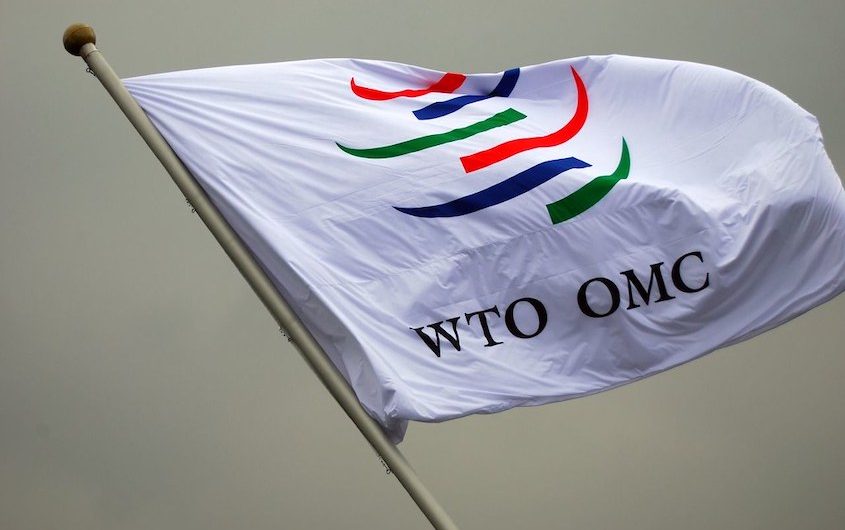
Enrique Mendizabal via Flickr
Rules or Tools?

Peter S. Rashish
Vice President; Director, Geoeconomics Program
Peter S. Rashish, who counts over 30 years of experience counseling corporations, think tanks, foundations, and international organizations on transatlantic trade and economic strategy, is Vice President and Director of the Geoeconomics Program at AICGS. He also writes The Wider Atlantic blog.
Mr. Rashish has served as Vice President for Europe and Eurasia at the U.S. Chamber of Commerce, where he spearheaded the Chamber’s advocacy ahead of the launch of the Transatlantic Trade and Investment Partnership. Previously, Mr. Rashish was a Senior Advisor for Europe at McLarty Associates, Executive Vice President of the European Institute, and a staff member and consultant at the International Energy Agency, the World Bank, UN Trade and Development, the Atlantic Council, the Bertelsmann Foundation, and the German Marshall Fund.
Mr. Rashish has testified before the House Financial Services Subcommittee on International Monetary Policy and Trade and the House Foreign Affairs Subcommittee on Europe and Eurasia and has advised three U.S. presidential campaigns. He has been a featured speaker at the Munich Security Conference, the Aspen Ideas Festival, and the European Forum Alpbach and is a member of the Board of Directors of the Jean Monnet Institute in Paris and a Senior Advisor to the European Policy Centre in Brussels. His commentaries have been published in The New York Times, the Financial Times, The Wall Street Journal, Foreign Policy, and The National Interest, and he has appeared on PBS, CNBC, CNN, NPR, and the BBC.
He earned a BA from Harvard College and an MPhil in international relations from Oxford University. He speaks French, German, Italian, and Spanish.
The World Trade Organization, the hundreds of bilateral and regional trade agreements, and the more informal norms, principles, and frameworks that together form the global trading system are consistently referred to as being “rules-based.”
This was the case just last week in the Joint Statement on Quad Cooperation in the Indo-Pacific where the U.S. Secretary of State and the Japanese, Australian, and Indian foreign ministers asserted their “commitment to upholding and strengthening the rules-based multilateral trading system, with the World Trade Organization at its core.”
But as the ongoing dispute between China and Lithuania over the latter’s decision to allow Taiwan to use that name (rather than “Taipei”) for its representative office in the country demonstrates, trade rules are often out of date or take too long to enforce.
The European Union, recently joined by the UK, has brought a case against China to the WTO in response to Beijing’s banning of imports made both in Lithuania and by other EU countries using Lithuanian parts—which is a direct threat to the integrity of the EU’s single market. It could take at least a year for the case to be decided.
What are countries to do when existing trade rules aren’t up to the task of defending their economic interests in a timely manner? As it happens, in December the European Commission proposed a new “anti-coercion instrument” that would provide the EU with the capacity to respond to just the kind of challenge presented by China’s actions toward Lithuania. A new tool, in other words, which by allowing the EU to restrict access to its market would serve both as a deterrent and, if necessary, as a punitive measure.
Whether owing to the WTO’s limitations, the rise of China’s non-market economy, or populist opposition to economic openness in liberal democracies, this focus on tools, rather than rules, is likely to gain traction.
And in a speech last October in Washington, Ambassador Katherine Tai, the U.S. Trade Representative, pointed to this shift when she committed to “work with allies and to develop new tools and new rules,” saying she is “particularly interested in new tools because the key is how can we be effective in changing the trajectory of this global competition model and how we can do that with others.”
Whether owing to the WTO’s limitations, the rise of China’s non-market economy, or populist opposition to economic openness in liberal democracies, this focus on tools, rather than rules, is likely to gain traction.
If so, the best way forward for the United States, Germany, and the EU is to coordinate their efforts, which would lend them the greatest legitimacy. One avenue that could be used is the U.S.-EU-Japan trilateral initiative that the Biden administration rejoined last November, although its original mandate was to create new WTO rules for subsidies and state-owned enterprises that take better account of the practices of non-market economies. Another option is the U.S.-EU Trade and Technology Council launched last September, one of whose working groups focuses on global trade challenges.
Whichever path is chosen, the United States and its like-minded trading partners should make clear that updating WTO rules remains the premier task and that creating new anti-coercion tools is about their potential deterrent value in a global economy that has regretfully become more anarchic.








